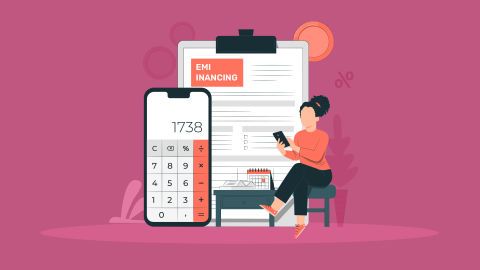Online education is the method of learning through digital platforms that provide access to lectures, videos, assignments, and interactive tools via the internet. Unlike traditional classrooms, this mode of learning allows students to study anytime, anywhere, and at their own pace. It has become a preferred choice across age groups, offering courses that range from basic academics to advanced professional training. With flexibility, accessibility, and a wide variety of subjects, online education empowers learners to build knowledge and skills without being restricted by physical boundaries, making it an essential part of modern education.
What is online education & its meaning?
Online education refers to a learning system that takes place over the internet, enabling students and professionals to acquire knowledge and skills remotely. It eliminates the need for traditional classrooms and allows learners to access educational content from anywhere in the world. Online education includes various formats such as virtual classrooms, video lectures, e-books, interactive assignments, and discussion forums. This mode of learning is widely used in schools, universities, and corporate training programs, offering flexibility, convenience, and accessibility to a vast array of courses and certifications.
What are the advantages of online learning?
In recent years, online education has transformed learning by providing flexible and accessible options for students of all ages. Here are some of the key benefits:
1. Flexibility and Accessibility
The biggest benefit of online learning is the freedom to study anytime, anywhere. With recorded lectures, downloadable materials, and self-paced modules, students can balance studies with work, travel, or personal commitments.
2. Cost-Effective Learning
Online education is more affordable than traditional classes. It eliminates expenses like travel, accommodation, and physical textbooks, while promoting a paperless, eco-friendly learning environment.
3. Diverse Resources and Learning Styles
From video lectures, e-books, and interactive quizzes to live sessions, online education adapts to different learning styles—whether visual, auditory, or self-paced learners.
4. Career Growth and Skill Advancement
Online courses are designed to meet industry needs, offering certifications and practical skills that boost employability. Students and professionals can upskill and stay ahead in their careers.
5. Improved Access to Experts and Courses
Digital platforms connect learners with global universities and industry experts, making specialized courses and high-quality training more accessible.
6. Higher Attendance and Consistency
Since students can learn from home or on the go, attendance rates improve. Recorded sessions also reduce the chances of missing lessons.
7. Development of Self-Discipline
Managing online study schedules builds time management, independence, and accountability—key skills that extend beyond academics.
8. Eco-Friendly Learning
By cutting down travel and reducing paper usage, online education supports sustainable and environmentally friendly learning.






